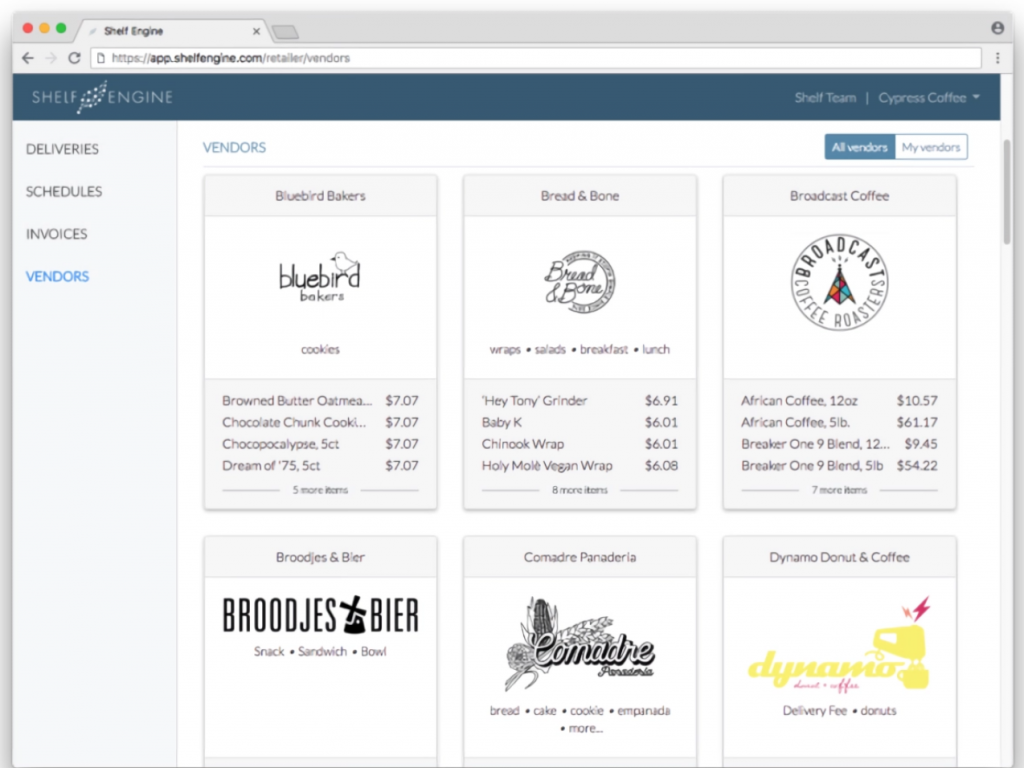
Shelf Engine raised over $58 million to serve over 2,000 grocery stores.
Shelf Engine Takes Grocery Store Profits to New Level with Less Waste
In a year of lockdowns and cutbacks, it seems every business in the country has been hit hard. Hit particularly was the supply chains of various enterprises. With workers out, and protocols instituted that completely changed the workflow of products. From fields to processes to manufacturers, the year was difficult all the way around.
Another result of the pandemic year of 2020 was a rise in food prices–the largest in basic food groups in over 50 years. Food costs and the amount of waste grocers found pre-pandemic made them a very low-profit proposition. Grocers were seeing only a 2% profit margin.
An article on venturebeat.com highlights an AI innovation that is expected to make a huge difference for grocers nationwide. Kyle Wiggers wrote:
Shelf Engine, a Seattle-based startup cofounded in 2015, tapped AI to help stores increase profits while reducing the waste of perishable products. The company raised $41 million in series B funding, bringing its total raised to $58 million as its platform expands beyond 85 customers and over 2,000 stores nationwide.
Traditionally, inventory managers use computer-assisted ordering and software-as-a-service solutions that require upfront hardware and software investments. They often don’t account for on-hand inventory data and high volatility in sales patterns, such as with pandemic or weather-related buying. An analysis by Retail Insight found that 56% of records of perpetual inventory (PI), which determines how much stock a store receives on each delivery, are incomplete and that 15% of lost sales are a result of inaccurate PI.
“[During the pandemic], grocers were impacted by new demand patterns they weren’t ready for. This created a spike in stock-outs as well as waste. This has accelerated the number of grocers who now want AI to take over their ordering and reduce their risk profile,” Kalb told VentureBeat via email. “We’re about to see a massive transformation in the grocery space, but it’s not what you’re expecting. Yes, online grocery is growing, but it will be nothing compared to store operations, procurement, and merchandising. Grocery will become a very efficient business and generate way more profit than ever before.”
ML Predicts Food Demands
Using machine learning, Shelf Engine forecasts demand for highly perishable foods, reducing waste and out-of-stock items. Drawing on point-of-sales data along with considerations like school schedules, local events, holidays, and weather, the platform generates probabilistic models for each unique product for every store, every day. These models are translated into profit maximization models to create orders, which are then fed by time-series models along with machine learning-based-dependent models. As a last step, Shelf Engine submits a store’s orders to vendors.
According to Kalb, one national grocer increased its profit margin 63.7% by using Shelf Engine to eliminate the cost of shrink from spoilage, breakage, and theft. Shelf Engine’s customers on average minimize stockouts by 90% while reducing food waste by as much as 32%, Kalb claims.
Those are incredible numbers to see in anyone’s profit margin.
“We’re reducing waste, while simultaneously increasing sales, and that goes straight to the grocer’s bottom line,” Kalb added. “We’re helping grocers to make much more money, better positioning them to gain market share and offer competitive prices, especially important as tech giants and other disruptors are entering the market. This latest round will enable us to further meet the demand from our customers to launch into thousands of new stores in the next 18 months.”
Shelf Engine can be shifted to almost any supply chain with food waste problems like diners, fast foods and more.
read more at venturebeat.com







Leave A Comment